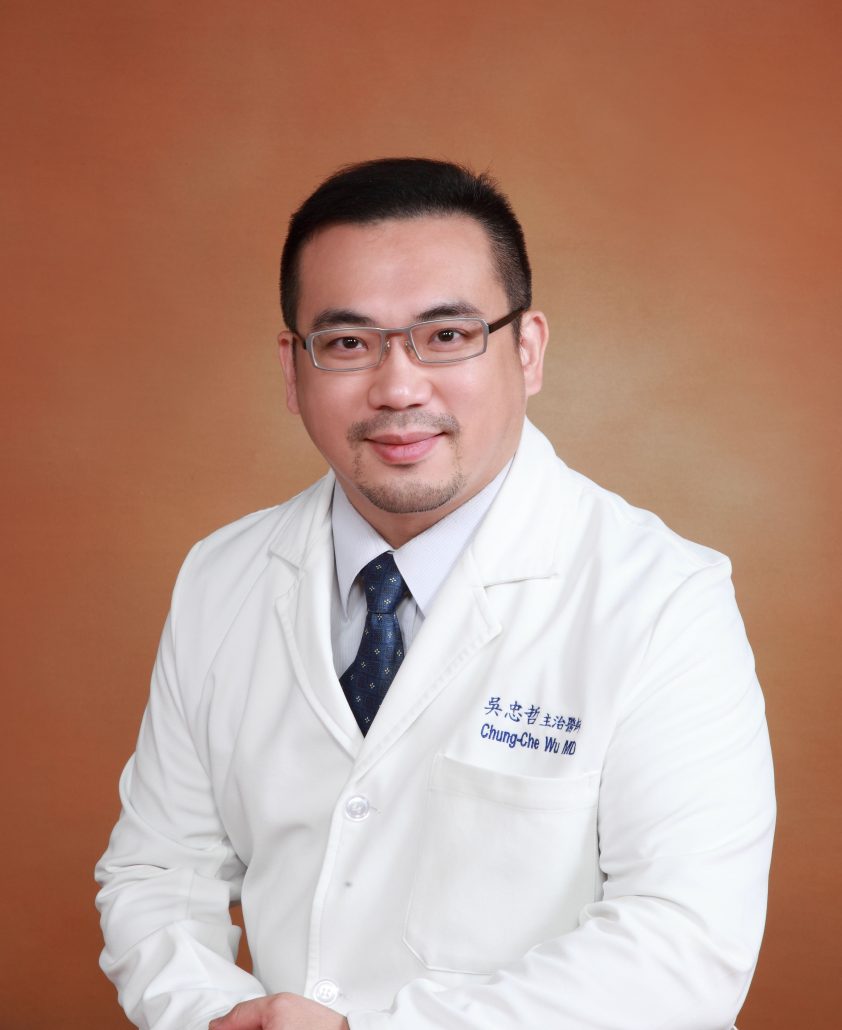Highlighted Researcher in TMU Neuroscience: Dr. John Wu, Clinical Neuroscientist
Dr. John Wu

Dr. Wu grew up in the beach town of Los Alamitos in Southern California. He graduated with a major in molecular cell biology and computer science from the University of California, Berkeley before returning to Taiwan to complete his MD and PhD from the National Defense Medical Center. He also holds a Post-Doctoral Professional Master in Bioscience Management from the Keck Graduate Institute. Dr. Wu’s surgical specialties include oncology and spine cases.
What is neuroscience, and what specifically is clinical neuroscience?
Neuroscience is the science of neurons and the supporting structures in general in the central and peripheral nervous system. There are lots of studies in peripheral pain, oncology, trauma, stroke, you name it, any type of pain, dizziness, any symptoms, basically has to do with neuroscience.
Clinical neuroscience is just taking the aspect of the patient, using that as an indicator to tell us whether or not what we are thinking in the neuroscience field is sound or inadequate, or needs work.
How did you first get interested in clinical neuroscience?
The first time I was looking at a brain was in high school in a dissecting lab. Everybody was looking at the heart, intestines and all that. I was looking at this tofu kind of tissue that nobody could make sense of. I was astounded by how this thing that just looks like a glob and yet has so much function in controlling the body. That was amazing to me.
Further into college I got into the electrophysiologies of neurons and I was really amazed by how a cell can be incorporated into a network and into the brain, and how different parts have different functions. That was amazing. That was where it started.
Throughout the training, at first when I was an intern, I was like, ‘There’s no way I’m gonna be a neurosurgeon!’ [Laughs] I was looking at some older physicians, attendings, and residents, looking at their schedules… there’s no way I’m going to take that kind of schedule. But over the years, it felt like, yeah, this is the calling. This is where I’m supposed to be.
Do you collaborate with other branches of neuroscience to help you in clinical neuroscience?
In clinical neurosurgery part we don’t do much molecular work, but in the neuroscience field we want to look at a mechanistic view, at genetics, and proteomics fields. For example if we have a trauma, we might have a delayed hemorrhage. How does that occur, what is the mechanism behind that? So we collaborate with the neuroscience staff at TMU, we have clinical trials, collecting specimens, documenting patients to see their symptoms [over time], and try to run genetic, proteomic studies to figure out what happened. That’s been really exciting.
[At the Neuroscience Center] we have a very diverse team, from psychology, to internists, to neurosurgeons, we hope to cover most of the fields. The first attempt to have something like this go on was about seven years ago. We were trying to get everyone working together for neuroscience. The efforts were beneficial and everyone started trying to see what everyone is doing and to help each other out. That’s been helpful. And slowly over the years there’s been a lot of collaborations and achievements, and we also see our own deficits. We’re hoping to get more collaboration with the basic sciences and neurologists, psychologists, psychiatrists. I think the process will be challenging. Ultimately it will be there.
What other kinds of interesting neuroscience research is happening at TMU?
Medical imaging at our hospitals is really advanced, so there are a lot of clinical trials going on. A really big project is the oncology imaging genomics study. We look at a tumor to see different parts of the image and check it against genomics. We ultimately hope to use MRIs or other imaging methods to determine if the tumor is really malignant, or benign, and try to see the molecular aspects of the tumors.
Pharmacology is very interesting because they have lots of small molecules, lots of Chinese herbs that people have known to be helpful for brain tumors for decades. But is it really that molecule, that medication? What in that Chinese herb is the active ingredient that’s helping the cancer? I think that’s really interesting right now. We’ve been talking to the people at pharmacology trying to get molecules, trying to review the articles, trying to get down to what’s really helpful in treating the tumors.
And I think artificial intelligence, nano-robotics and nano-medication, that will be another interesting and impactful field for the treatment of diseases and neurosurgery as well. We’re really excited about the collaborations between these different groups.
For interviews or a copy of the paper, contact Office of Global Engagement via global.initiatives@tmu.edu.tw.








